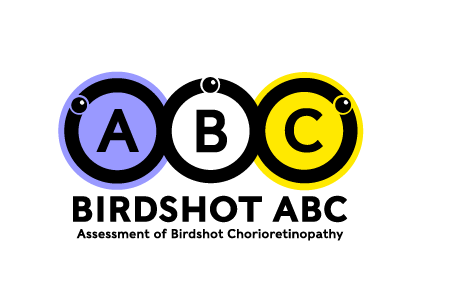Would you like to take part in research to improve birdshot treatment and tests? Do you attend either Moorfields Eye Hospital, London or University Hospitals Birmingham (Queen Elizabeth Hospital) for your eye care? If you answered ‘yes’ to both those questions, you will be interested to hear about the new BIRD-SET research study. BUS is delighted to support Dr Colin Chu, the BIRD-SET study leader.
About BIRD-SET
The Birdshot Dataset Study (BIRD-SET) has just opened. It will run until the end of 2024.
All patients with a diagnosis of birdshot who attend either Moorfields Eye Hospital or University Hospitals Birmingham – Queen Elizabeth Hospital will be invited to join the study.
The aim is to generate one of the largest combined research datasets in birdshot. This will greatly advance understanding of the condition and how patients respond to treatment.
How does it work?
There are three parts to the BIRD-SET study, but not everyone who is enrolled will do all three parts.
Part one of BIRD-SET is for all who are taking part. First, they will be invited to provide a saliva sample for genetic sequencing. Next, they will be asked for a blood sample to be donated to the biobank held by the NIHR BioResource Rare Disease Study. This will be used for future research. Finally, there is the opportunity to contribute their medical history and eye imaging data to the Birdshot-ABC Study. This existing study aims to share birdshot clinical data and eye images anonymously to generate quality standards and improve the care of birdshot in the UK.
BIRD-SET’s second part is for those who are starting new immunosuppressant treatments. They will be asked to provide an additional blood sample. This is to trial a new test that could allow doctors to predict whether individuals will respond to a medication before they start it.
The third part of BIRD-SET is to test a new non-invasive imaging technique that could identify how well the retina is functioning in birdshot. This new kind of imaging could supplement or replace current monitoring tests such as fluorescein angiography or electroretinography (ERG).
Funding
The BIRD-SET study is receiving support from Regeneron Genetics Centre LLC, USA, Moorfields Eye Charity and NIHR Moorfields Biomedical Research Centre for Ophthalmology. The chief investigator is Dr Colin Chu (Moorfields and UCL) and the principal investigator at Birmingham is Dr Balini Balasubramaniam (UHB). If you are a patient and would be interested in receiving more information to participate, please email alexis.wormall1@nhs.net.
What if I don’t go to Moorfields or Queen Elizabeth Hospital Birmingham?
Unfortunately BIRD-SET is only available for patients at Moorfields and UHB. However you may be able to take part in the NIHR BioResource study at one of the other centres closer to you by asking if you can be recruited to the Rare Disease Birdshot study. Please see https://bioresource.nihr.ac.uk/centres-programmes/ and https://bioresource.nihr.ac.uk/centres-programmes/rare-diseases-bioresource/
